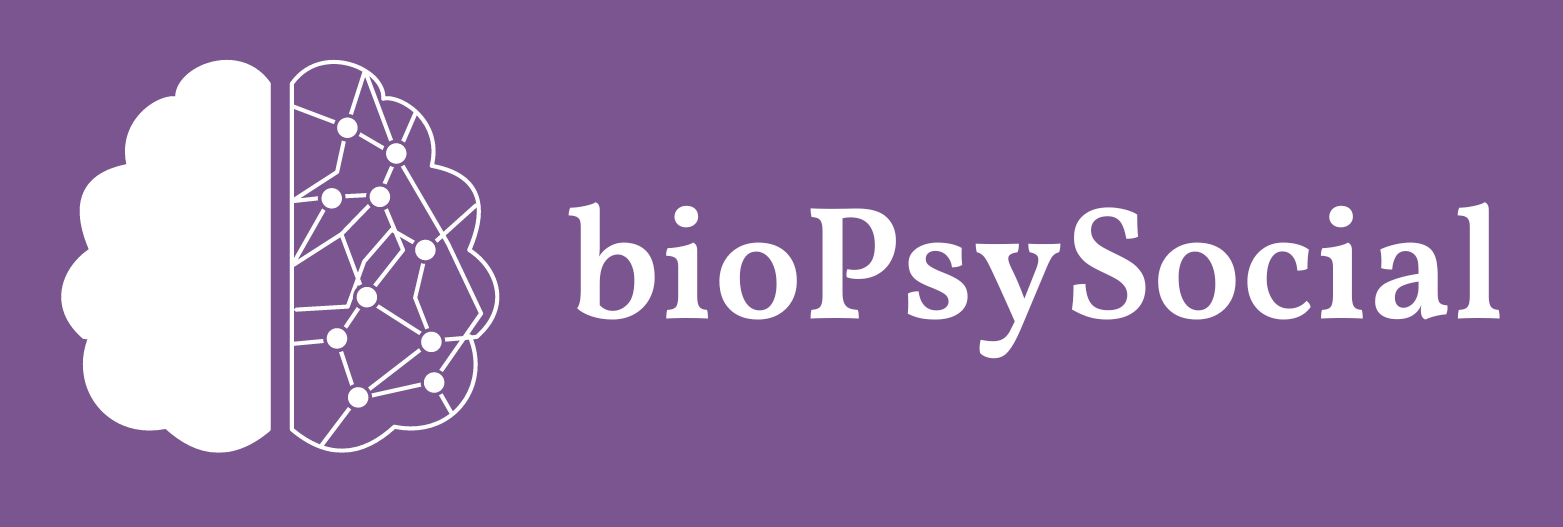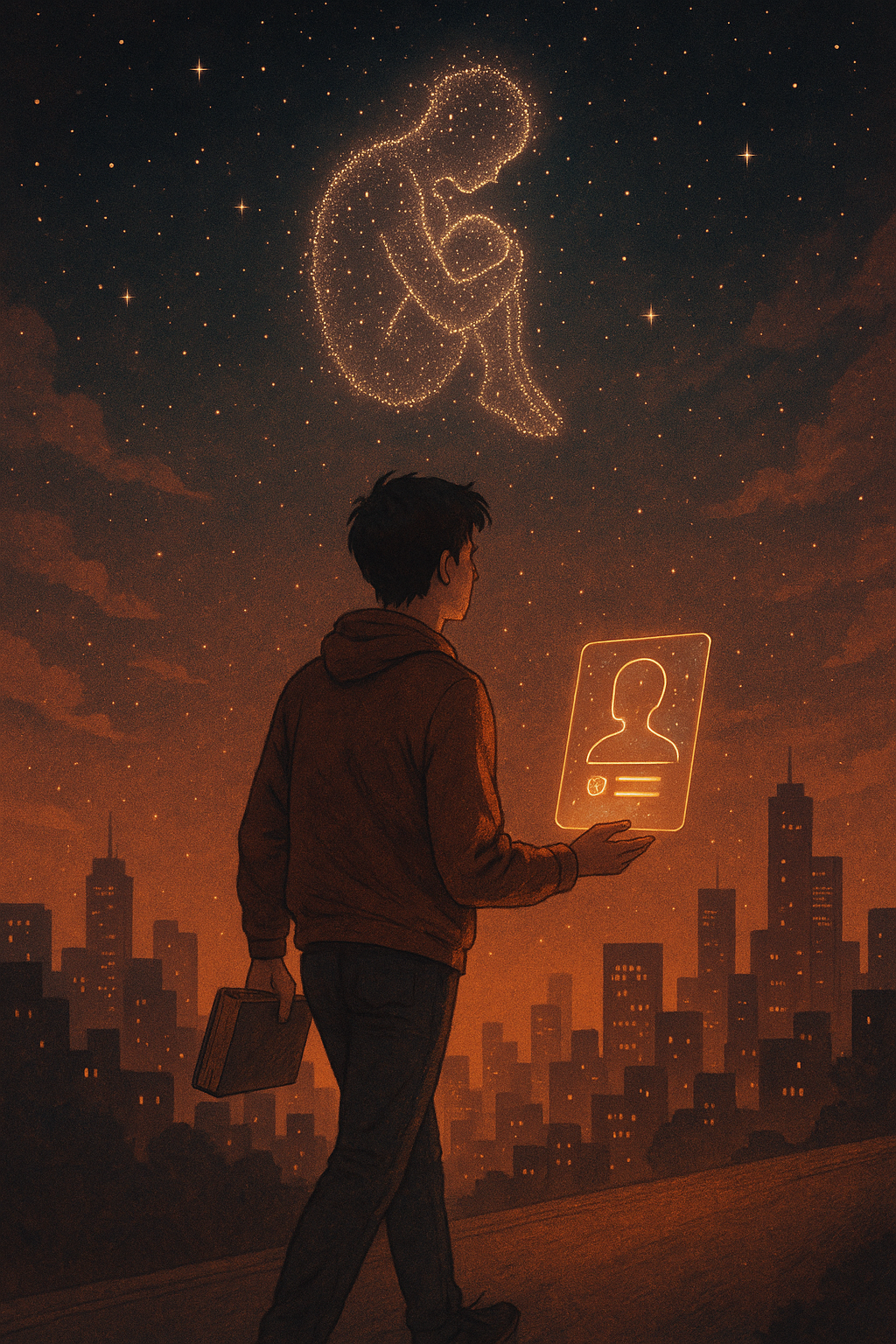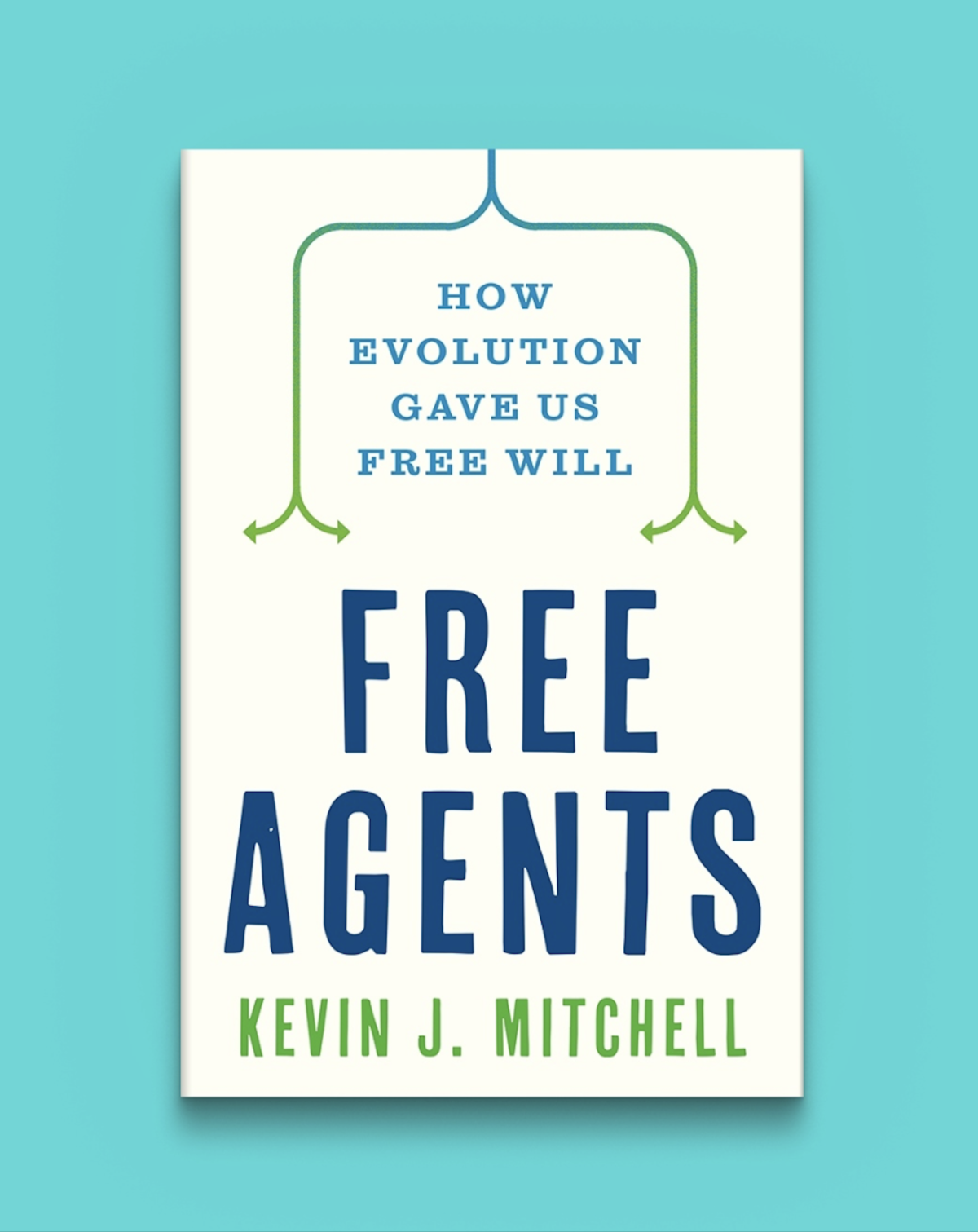Alexander Abi Saad
The human brain is one of the universe’s most complex known structures. The mind is even more complex in many ways. One can conceptualize the mind as the software and the brain as the hardware that itself is affected by multiple pathways. Genes, they express themselves. Hormones, they circulate. Neurons, they fire. They connect too. They constantly interact with the environment as well. Together, they lead to complex cognition, affect, and behaviors from our simple head movement to our deepest feelings that make us who we are. But to argue this is the end is not merely reductionist, but also irrational and harmful.
I am a deep believer in the power of biology in shaping who we are and as a useful therapeutic strategy for many complex psychiatric disorders. I love genetics and neuroscience. GWAS, polygenic risk scores. You name them. I’m probably – but humbly – one of the people who are most excited about such topics on the globe (no citation available, though). But their findings don’t really mean what some people think. No matter how much knowledge you may have about these fields, you can walk into a mental health professional who knows them too. But you want more, you want to be seen. You have a story, and you want it to be heard. No amount of fMRI activation patterns (for readers not familiar with fMRI, it is a modified version of MRI that can detect which brain areas are active during specific times/tasks by measuring blood flow; fMRIs are commonly used in neuroscience research) papers will make you feel as valid as a compassionate smile on someone’s face that tells you, “I feel you.” This post is not a poem, but a bridge asserting that brain, mind, and behavioral sciences do not have to be in disharmony with a warm, humanitarian perspective of mental health. I will argue why humanity and complex dynamic conceptualization of the mind should remain at the core of the scientific pursuit of mind and behavior.
The case against reductionism and genetic determinism
From blank state psychology (an essentially refuted hypothesis that asserts that we are born without predispositions and are entirely the product of our environments) to simple neurochemical (such as the famous misleading “serotonin deficiency”), reductionist theories of depression have filled popular culture and even scientific history. We’ve seen the reductionism of human complexity in so many forms. History keeps proving it almost never works though, particularly in the case of most human behaviors. No single gene means you will necessarily have depression. And no single environment will necessarily mean you will have PTSD. And geneticists (at least the regular ones!) aren’t trying to say otherwise. The truth is simple: although similar in many ways, everyone remains unique. Every mind has its complex connections that have been shaped by their inherent biology and their environment to create a reality that is far too specific to be exactly replicated by any other person’s brain. Even identical twins (monozygotic) have their differences. Random genetic mutations lead to a noticeable accumulation of differences in the genome the more the older the twins grow. Their environments are also not identical, which leads to differences that are partially mediated by epigenetics. These twins remain very similar but not entirely. The key part is not entirely. So really, every one of us is unique. Despite that, there is a continuous sentimental fear of biological psychology (particularly behavioral genetics) among a significant proportion of the public and non-biologically oriented mental health professionals. This is usually due to the belief that biologists are here to take away the complexity of the human condition, and reduce it to a small set of predictable nucleotides that can explain every feeling we have, “rendering them meaningless.” Such fears often revolve around a dystopian eugenic society (an immoral practice of “improving” society’s makeup). These concerns are definitely not unwarranted because history has shown how reductionism (including biological) can relate to harmful ideologies that have hurt and killed millions. Meanwhile, billions of dollars in funding into the biology of mental health in the past few decades have not yet led to complete accounts of neuropsychiatric pathologies and have not-always-impressive practical clinical advancements. Some even argue against the concept of mental “disorders,” but this topic won’t be tackled in this piece. The idea of biological research about the complexity of humans seems dystopian to many, and borderline eugenic to others, but it doesn’t have to be this way. As stated earlier, the criticism of biological psychiatry is sometimes fair and needs to be addressed – but it is often fatalized to suggest eugenics is the only possible outcome. Often, scientifically unsound conclusions are made about biological psychiatry. Enhancing socioeconomic determinants of mental health and quality-of-life of people and battling harmful ideologies don’t necessitate denying basic reality. At the end of the day, we are biological beings. Pretending we aren’t can hinder scientific and psychotherapeutic practices. Even those who believe in spiritual accounts of the mind can still admit the brain may be a mediator for certain clinically relevant behaviors and emotions. But admitting that doesn’t mean you’re on a journey to rebuild eugenics. In fact, biological research is compatible with an egalitarian society that promotes the well-being of everyone, including marginalized minorities. It may be true that the scientific genetic and neuroscience literature has yet to revolutionize the outcomes and prognosis of schizophrenia for example, but this is because of the enormously complex nature of mental health. I admit that reductionist biological approaches that do not take into account the fundamental humanity of the affected people and reduce the conditions to void symptoms are partly to blame – and that’s what I am arguing against in this piece. But neither of these things means biology is irrelevant or too complex to be studied. You put the same two people in the same environment: one might strive, the other might struggle. Understanding that this is likely (at least partially) due to their genetics doesn’t take away their uniqueness, their humanity, or the role of their environment. Each person still has a unique story that may have fundamentally altered why one of them strived and the other failed. They both still deserve to succeed, and the one who didn’t might need more help to do so. We can build a society that seeks to do just that, embrace differences, and help people attain their optimal level of well-being (however they define it). Some even argue for the use of biology as a tool to fight against social inequalities. In her book “The Genetic Lottery: Why DNA Matters for Social Equality”, Dr. Kathryn Paige Harden, a psychologist and behavioral geneticist firmly denies genetic determinism (that genetics entirely and fixedly determine human behavior). She explores how understanding the importance of genetics in complex human traits (such as educational attainment) may be a tool for a positive change someday by modifying environments to suit people’s biological needs so they can thrive, thus minimizing inequalities and leading to a more egalitarian society. She might seem too optimistic for some, but it seems evident at least she’s not here to recreate a eugenic movement. Our happiness, misery, and educational attainment are somewhat related to DNA and neurons. But that doesn’t make them less joyful, sad, authentic, and definitely not less modifiable. It just means one of the lenses through which we can look at them is biological, which might help improve them for the person’s best interest (which they can determine themselves). A potential critique of this position is that it seems too utopian, as it’s very difficult and will take long-term significant efforts from everyone to reach, but this article is more theoretical, and I don’t see any theoretical reason why this is not possible. Wanting to cure cancer or Alzheimer’s is optimistic and highly challenging as well, but we don’t stop trying. And I don’t have to abandon biology as a potential for better care in mental health either.
Humane compassion at the core of efficaciousness of mental health interventions
Despite advances and a multitude of approved drugs for the treatment of mental disorders, scientific research indicates that psychotherapy continues to be an important tool in mental health treatment, and for good reasons. Connecting with people, letting them express themselves, and validating them can often be as important as any manual or drug for their healing. The literature comparing psychotherapy to medication is mixed, due to methodological differences in trials for pharmacotherapy and psychotherapy so it is often hard to choose which is better. But some ideas are already clear: psychotherapy is a comparable tool and can be a better choice in many cases. Sometimes, the combination of both is optimal as well. Thus, it is important for mental health management not to be a quick-pill prescription because this is unlikely to suffice for the long-term management of many conditions. To improve that, psychotherapeutic interventions are often worth considering alone, or as an add-on to medication or lifestyle changes for many mental health conditions. Providing one-on-one humane listening and seeking to change someone’s mind for the better may sometimes be just as powerful (or even better in some situations) as that SSRI. And most importantly, any clinical decision for which treatment modality is best should carefully consider the patient’s specific circumstances.
(Editor’s Note: No references are provided because most research is condition-specific and depends on context whether acute, chronic, long-term and other factors such as age. If you are interested in the literature comparing specific treatments, there are probably review papers so consult the specific literature on that condition).
On another note, the criticism of reductionism of human complexity is often addressed at psychiatry and biology. But these disciplines aren’t the only guilty ones. Modern psychological research and practice have also showed some reductionism. The rise of manualized, short-term, highly structured mental health therapies is often portrayed as a cornerstone of “scientific revolution” in contrast to “outdated” longer therapies such as psychodynamic therapy. However, such an assertion is not fully right. While cognitive-behavioral therapy (CBT) may have its advantages, it is not necessarily the only therapeutic tool that is scientific. I do believe classical psychoanalytic theory may not be testable or very relevant to our 21st century thinking, but I cannot deny some psychodynamic therapies have also established themselves as evidence-based and may be more helpful to many people and for many conditions. Yes, this most probably isn’t due to Freud’s psychosexual stages of development, which I believe should be abandoned. But it could be due to the increased humane connection this school of thought tends to focus on. Focusing on the connection between a therapist and the patient may be as important as some recently defined worksheets to follow weekly. In fact, the evidence has continuously supported that one of the biggest elements predictive and mediating of improvements in therapy is the therapeutic relationship between the patient and not just the theoretical approach, which only makes the argument provided in this article more pertinent. “Evidence-based” doesn’t have to mean simplistic or overly rigid; it just means the therapy has to work, as according to the presence and likelihood of clear benefits felt and exhibited by the person.
Even more so, the focus on completely structured, time-bound therapies is not entirely rooted in science. Rather, it may be rooted in a desire to appeal to capitalistic institutions, policymakers, and insurance companies that demand “quick fixes.” Such approaches do not necessarily mean better science; they mean more capitalistic-practical evidence. And it doesn’t have to be this way. If you check any therapy techniques textbook, you will find a plentitude of techniques with reasonable theory that warrant empirical investigations, with little empirical investigations – partly due to lack of interest from funding sources. This is not to say that short-term CBT or other highly structured interventions do not work. They are sometimes better than other therapies, but their “gold-standard” status is not entirely based on objective considerations and may be debated for many conditions.
(To note that I am personally quite fond of the cognitive-behavioral psychological school of thought more broadly; this critique was more aimed at short-term highly manualized CBT).
There is unlikely to be a fit-all psychotherapy for any condition. Biology may help understand and predict who might benefit from which approach in psychotherapy. But most importantly, any consideration of therapeutic procedures is likely to benefit from considering of the unique humanity of each beneficiary and scientific clinical trials should have this embedded in their methodology.
But why does all of this matter?
Science is undeniably a powerful tool, but it’s also risky. As you may have had to argue in your high school French class essays, science can be a tool for good or bad. However, the conceptualization of the science’s philosophical landscape does not only affect how it’s used but may also affect how robust it is.
It is very assertable that science is a suitable technique for studying complex human behaviors. However, one needs to remain humble about available evidence at this stage. Our current understanding and tools for mental health treatments are limited. Of course, we have issues of accessibility and scalability that are related to economics and sociology more than they are to research, but the science itself is not perfect either. While many benefit from mental health treatments, others may receive a multitude of approaches without much improvement. The need for a better classification system and conceptualization of psychiatric diagnoses is already evident in academic circles since current tools such as DSM-5-TR or ICD-11 are imperfect. Including the complex, non-reductionist humanity we have within us in such new frameworks is not merely a moral duty, but it also may lead to better accuracy and usefulness of such paradigms as they become more reflective of phenomenological reality.
(Editor’s note: I just really wanted to use “phenomenological” in my first post here, bear with me, it just means consciousness and awareness. I could have simply said, “conscious reality”).
Thus, remaining faithful to the humanity in us doesn’t hinder scientific progress; rather, it promotes it. Understanding diversity, context, and interpersonal differences in experiences that we know very little about can also lead to better conceptualization of disorders. Increasing resources and evidence base for warmer, more humane psychotherapy forms can also help fill the gap that current evidence-based treatments may have. Another aspect is realizing our limitations: understanding the intrinsic complex subjective part of having a mind can make us aware of the complexity of the topic. We won’t have mental health fully figured out by next year or the next decade. Knowing that can lead to more accurate and timely expectations of scientists.
Concluding Remarks…
To achieve such a humane scientific study of the mind and body, continuous communication between disciplines and ethical guidelines are needed to dynamically determine what is appropriate research/application and what is not. Keeping humanity and compassion at the core of brain and mind research ensures that ultimately, the goal is to celebrate the diverse minds we have, not force people into becoming people they aren’t, not erase anyone, but instead improve the well-being of everyone. This maintains the science robust, and their humanity sacred.
Acknowledgements
It’s not a thesis, just a blog, I know. However some ideas used in this blog have been adapted from ideas by people I have enormous respect for. I would like to thank Ms. Loulwa Kaloyeros, a psychologist at the Lebanese American University (LAU) and my instructor in multiple undergraduate courses whose approach and interaction partially inspired me to write this post; Mr. Sarkis Guedjelian, a clinical psychologist/psychotherapist whose critical idea on manualized therapies was adapted for this post; and Dr. Kristian Kemtrup, faculty member at San Francisco State University, whose criticism of CBT as a “gold-standard” was also adapted for this post. Others may have influenced this blog because no idea or article comes from nowhere, but I have synthesized ideas with my overall perspective!
This article was minorly revised in 2024 for accuracy and linguistic style.





